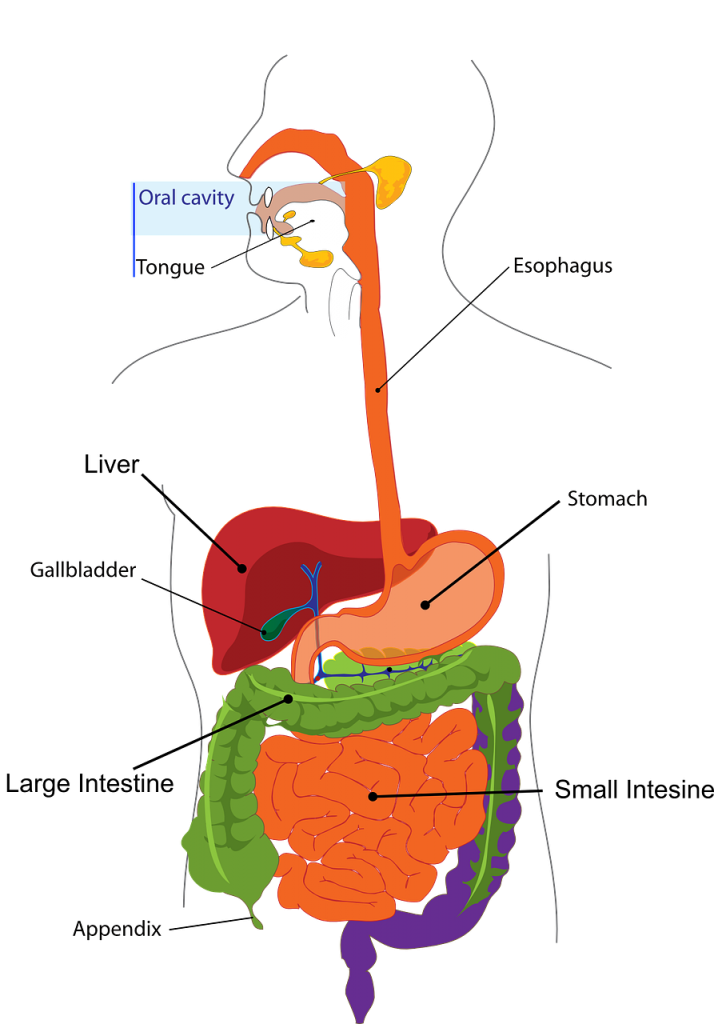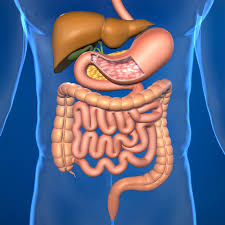Gut Health, GI Disorders that can Trigger Strong Rosacea Flares
While many people battle minor GI disorders occasionally or on a daily basis, there are only three known — to date — that have been clinically proven to cause rosacea flares and rosacea progression.
3 Rosacea flare triggering gastrointestinal disorders
-
Inflammatory Bowel Disease – IBS and Rosacea
Inflammatory bowel disease such as ulcerative colitis has been shown in clinical studies to exacerbate rosacea symptoms. Ulcerative colitis is a disease that causes inflammation and sores in the lining of the large intestine. Most physicians believe that this disease is related to an over-reaction of the immune system. Symptoms of ulcerative colitis include abdominal pain, bloody diarrhea, fatigue, weight loss and nausea.
It is hypothesized that inflammatory bowel disease worsens rosacea symptoms by stimulating inflammatory immune cells and/or triggering the release of dilator substances from the intestinal wall into the blood stream. If you experience these symptoms for longer than two weeks you should see a GI specialist who can diagnose this disorder through a panel of blood tests or minimally-invasive scope procedure. Often times, when this disorder is treated properly rosacea symptoms greatly improve and sometimes even go into remission.
-
Celiac Disease
Celiac Disease (also called celiac sprue or gluten intolerant enteropathy) is a condition characterized by a chronic reaction to certain protein chains, commonly referred to as glutens, found in some cereal grains. This reaction causes destruction of the villi in the small intestine, resulting in intestinal dysfunction, inflammation and malabsorption of nutrients. Symptoms can vary tremendously between patients. Individuals range from having no outward symptoms to extreme cases where patients present to their physicians with gas, bloating, diarrhea, fatigue and weight loss.
It is hypothesized that celiac disease worsens rosacea symptoms by stimulating inflammatory immune cells and/or triggering the release of dilator substances from the intestinal wall into the blood stream. It may be comforting to know that identification and avoidance of the glutens (i.e., a gluten-free diet) can result in complete clearance of this disorder. Primary care physicians can usually diagnose this disorder by evaluating a simple blood test that would show certain immunoglobulins present in the bloodstream.
-
Acid Reflux Disease
Acid reflux disease is quite common. The symptoms may vary from mild to severe and may occur daily or just once or twice a week. The severity of the disorder and the number of times it occurs daily determines how it affects rosacea symptoms. Severe acid reflux that occurs at least two to three times a week can significantly affect the severity of rosacea and thus should be closely monitored by a gastroenterologist. Oral treatment or minor surgery often cures acid reflux disease and rosacea symptoms often abate after this GI disorder is treated..
The main cause of acid reflux disease is a problem with the lower esophageal sphincter (LES) muscle. This muscle, which is the “valve” between the stomach and the esophagus, normally closes tightly after food has passed through to the stomach.
The LES does not stay closed in people with acid reflux disease. When this happens, acid and stomach contents may back up (reflux) into the esophagus. This acid backup can sometimes cause the painful, burning sensation known as heartburn or other symptoms.
Symptoms of Major Gastrointestinal Illness To Look Out For
In a small percentage of rosacea sufferers, treatment of an underlying gastrointestinal disorder may help alleviate rosacea symptoms. A few important signs of major gastrointestinal dysfunction include:
- Loose pale watery stools
- Cramping diarrhea
- Bloody diarrhea (see dr. immediately)
- Loose yellow stools
- Abdominal pain during or after eating
- Severe gas or bloating after eating
If you are experiencing these issues frequently, and its enough to annoy you over a week or two, please seek help, don’t suffer or try to medicate yourself. Catching a GI disorder early is key.
Rosacea is more than skin deep!
While some rosacea is caused by GI issues, some can be caused by other dysfunctions, medications, or aggressive skin treatments and damage. Some other diseases mirror rosacea symptoms too. This is why, a proper diagnosis by a medical professional can help you start going down the correct path to healing.
Share your experience help other Rosacea Sufferers
- Have you ever been diagnosed with a gastrointestinal disorder, and if so, did treatment reduce your rosacea symptoms, share your experience and help other rosacea sufferers discover a path to wellness?
- Do you have any of the above-described symptoms and rosacea? Did you even consider being seen by a physician to see if GI issues may be at the root of your rosacea symptoms?
Thank you for sharing!

